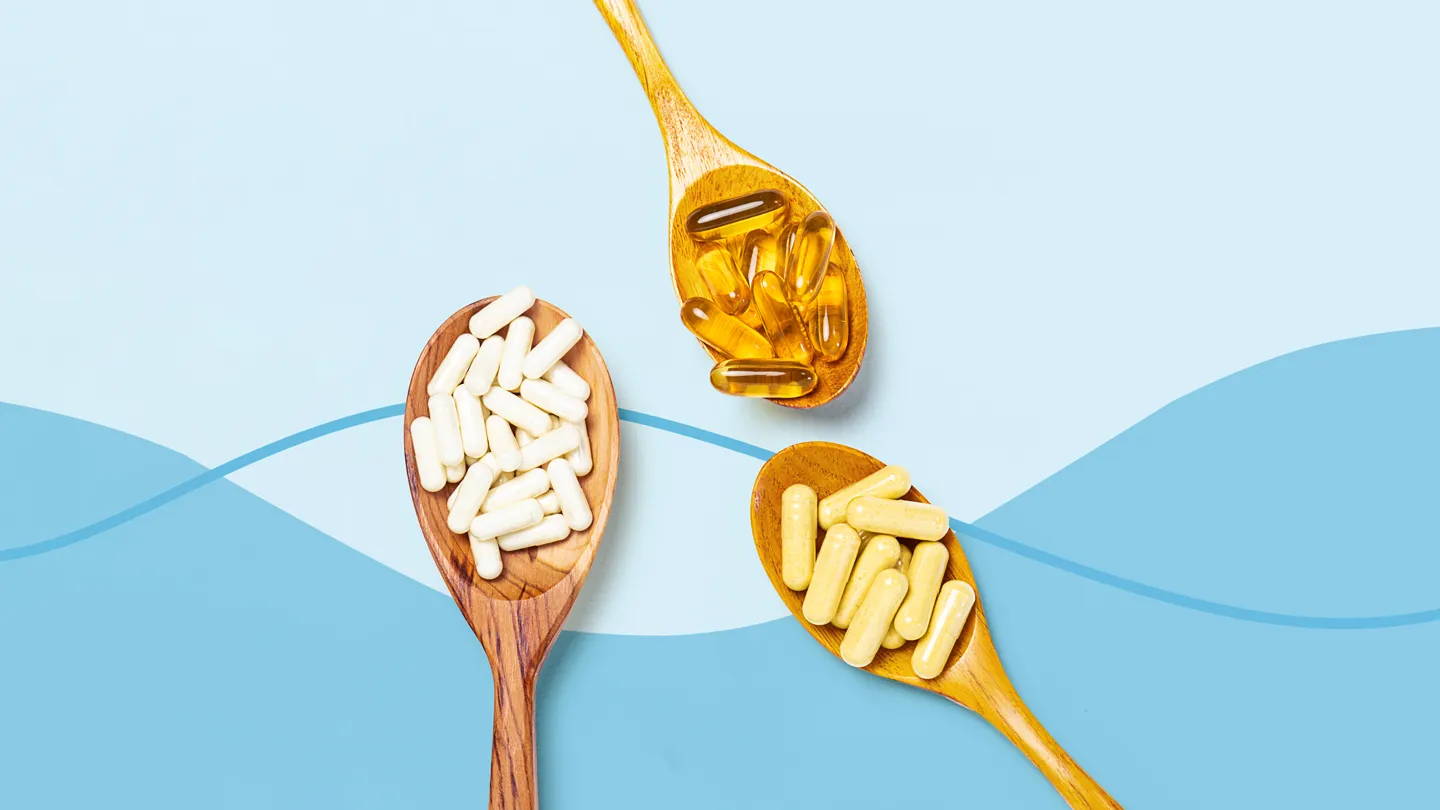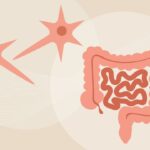Note: The U.S. Food and Drug Administration (FDA) does not approve supplements for safety or effectiveness. Talk to a healthcare professional about whether a supplement is the right fit for your individual health, and about any potential drug interactions or safety concerns.
Several treatment options are available for nasal polyps (noncancerous growths in the nasal or sinus cavities), including medication and surgery. Some experts believe certain supplements can work alongside these treatments for better outcomes.
Although research is ongoing, current studies offer little certainty on the effectiveness of supplements for nasal polyps, says Andrew Spector, MD, an ear, nose and throat specialist at Dartmouth Health in Manchester, New Hampshire. Although Dr. Spector rarely recommends supplements for nasal polyps in his own practice, he says some options may offer benefits.
Other physicians, like Kara Wada, MD, an adult and pediatric allergist and immunologist and founder of the Immune Confident Institute in Columbus, Ohio, who treats people with nasal polyps, more readily recommend supplements for nasal polyps as part of a holistic approach to treatment. “While supplements can play a supportive role, they are most effective when integrated into a comprehensive care plan that addresses all these aspects,” says Dr. Wada.
Here are five supplements that have the best chance of helping you manage your nasal polyp symptoms alongside standard treatments.
1. Vitamin D
Vitamin D works with calcium to maintain strong bones, but it also plays an important role in fighting off infection and managing inflammation — a major cause of nasal polyps. “Growing evidence [suggests] individuals with chronic rhinosinusitis with nasal polyps often have lower serum vitamin D levels, and supplementation can be quite beneficial,” says Wada.
That said, this does not mean that low levels of vitamin D actually caused the polyps, says Spector. “Nor will vitamin D supplementation eliminate them in patients with normal blood levels of the vitamin, but it may be a useful adjunct to therapy in deficient patients,” he says.
One small study of 40 people showed that those who took 4,000 international units (IUs) of vitamin D daily for a month had fewer and less severe nasal polyps after six months than those who took the placebo. Another study, of 200 people, found the same — vitamin D supplements (60,000 IU once a week for three months) helped improve nasal polyp symptoms.
There are some things to keep in mind before you try a vitamin D supplement. Too much vitamin D can cause nausea, vomiting, confusion, pain, weakness, poor appetite, and dehydration. “It’s crucial to have your vitamin D levels checked by a healthcare professional and to follow their recommendations for dosing. We’re looking to optimize levels, not megadose, and a personalized approach is key,” says Wada.
Vitamin D can also interact with other supplements and medications, including weight loss drugs, statins, steroids, and diuretics. Anyone with kidney or heart problems should also be extra careful when taking vitamin D, because too much can damage the heart valves and the kidneys.
2. Quercetin
Quercetin, a flavonoid compound found in many fruits and vegetables, may improve nasal polyps by decreasing inflammation.
“Quercetin does possess some anti-inflammatory properties and blocks the release of histamines (similar to Claritin or Zyrtec), and has shown some benefit in patients with allergies,” says Spector. On the other hand, he says, no large studies have shown benefits for nasal polyps.
One animal study found quercetin may block pathways that cause inflammation, possibly reducing this common cause of nasal polyps, but more human trials are needed to confirm this result.
There’s not much data on how to use quercetin safely, especially long-term, and since no studies have been published on quercetin in pregnancy, people who are pregnant or breastfeeding should avoid using it.
Quercetin may interact with some medications, including some sedatives, antibiotics, antihistamines, and drugs for high blood pressure and high cholesterol.
3. N-Acetylcysteine (NAC)
N-acetylcysteine (NAC), a supplement derived from the amino acid L-cysteine, works as an antioxidant and can reduce mucus in the respiratory tract, decrease inflammation, and strengthen your immune system.
NAC has mostly been studied in people with chronic sinus issues without polyps, says Spector, but because chronic sinusitis is thought to be the most common reason for the appearance of nasal polyps, it may be of some benefit.
One small study of 49 patients found that nasal irrigation with NAC after sinus surgery improved nasal symptoms like smell difficulties, crusting, and postnasal drip. Other trials on both inhaled and oral NAC are currently ongoing to learn how this compound affects sinusitis.
NAC is considered safe for most adults, but it may interact with blood thinners, blood pressure medications, or nitroglycerin for chest pain. It can also magnify the effects of other herbal supplements that lower blood pressure or slow blood clotting.
Side effects most often include mild gastrointestinal upset, like nausea, reflux, or diarrhea, says Wada. “There’s also a distinct sulfur smell that some find off-putting,” says Wada.
As with any supplement, if you have preexisting health conditions or are on other medications, it’s always best to consult with your physician before starting NAC,” says Wada. That’s especially true if you’re pregnant, breastfeeding, have asthma, or plan to have surgery soon.
4. Omega-3 Fatty Acids
Omega-3 fatty acids are naturally found in foods like fish and flaxseed, but can also be taken as a dietary supplement.
“Omega-3 fatty acids, particularly EPA and DHA, are powerful anti-inflammatory agents,” says Wada. One small study showed that taking omega-3 supplements after surgery delayed the recurrence of polyps.
Although no large-scale clinical trials have specifically studied the effect of omega-3s on nasal polyps, their well-established role in reducing systemic inflammation makes them a logical additional therapy, Wada says.
“Many of my patients with chronic inflammatory conditions, including those with nasal polyps, experience benefits from consistent, high-quality omega-3 supplementation,” says Wada. Omega-3s have a good safety record, but the U.S. Food and Drug Administration (FDA) recommends getting no more than 5 grams (g) per day from supplements.
Side effects from omega-3 supplements are typically mild and can include burping, heartburn, and loose stools, says Wada. “There’s also a concern about increased bleeding risk, particularly in those on blood thinners or before surgery, so it’s vital to discuss this with your doctor,” she says. The FDA also cautions against taking omega-3s if you’re allergic to seafood.
5. Bromelain
Bromelain (a group of enzymes that break down proteins) naturally occurs in pineapples, but can also be taken as a supplement.
“[This] supplement can also reduce inflammation to improve pressure and breathing, but there really are not any studies that show benefit in patients with polyps other than subjective improvement on sinonasal outcome test surveys,” says Spector.
In South and Central America, people have traditionally used pineapple for medicinal purposes for many years, but large-scale research has yet to prove its benefits. One meta-analysis found taking oral bromelain may improve sinusitis, but more high-quality research is needed to determine whether bromelain can improve sinusitis, and by extension, nasal polyps.
People who take bromelain typically tolerate it well, and the most common side effects are upset stomach and diarrhea. Experts don’t know whether bromelain is safe to take while pregnant or breastfeeding. Regardless of your health situation, it’s always best to discuss any new supplements with your healthcare provider before starting them.
The Takeaway
- Some supplements may improve nasal polyps by lowering sinus inflammation and improving immune function, but more research is needed to confirm these effects.
- The supplements most likely to help manage nasal polyps alongside standard treatments are vitamin D, quercetin, n-acetylcysteine, omega-3 fatty acids, and bromelain.
- Before you try any new supplement, discuss it with your healthcare provider, who can recommend the right dosage for you and monitor you for side effects or drug interactions.
Read the full article here




